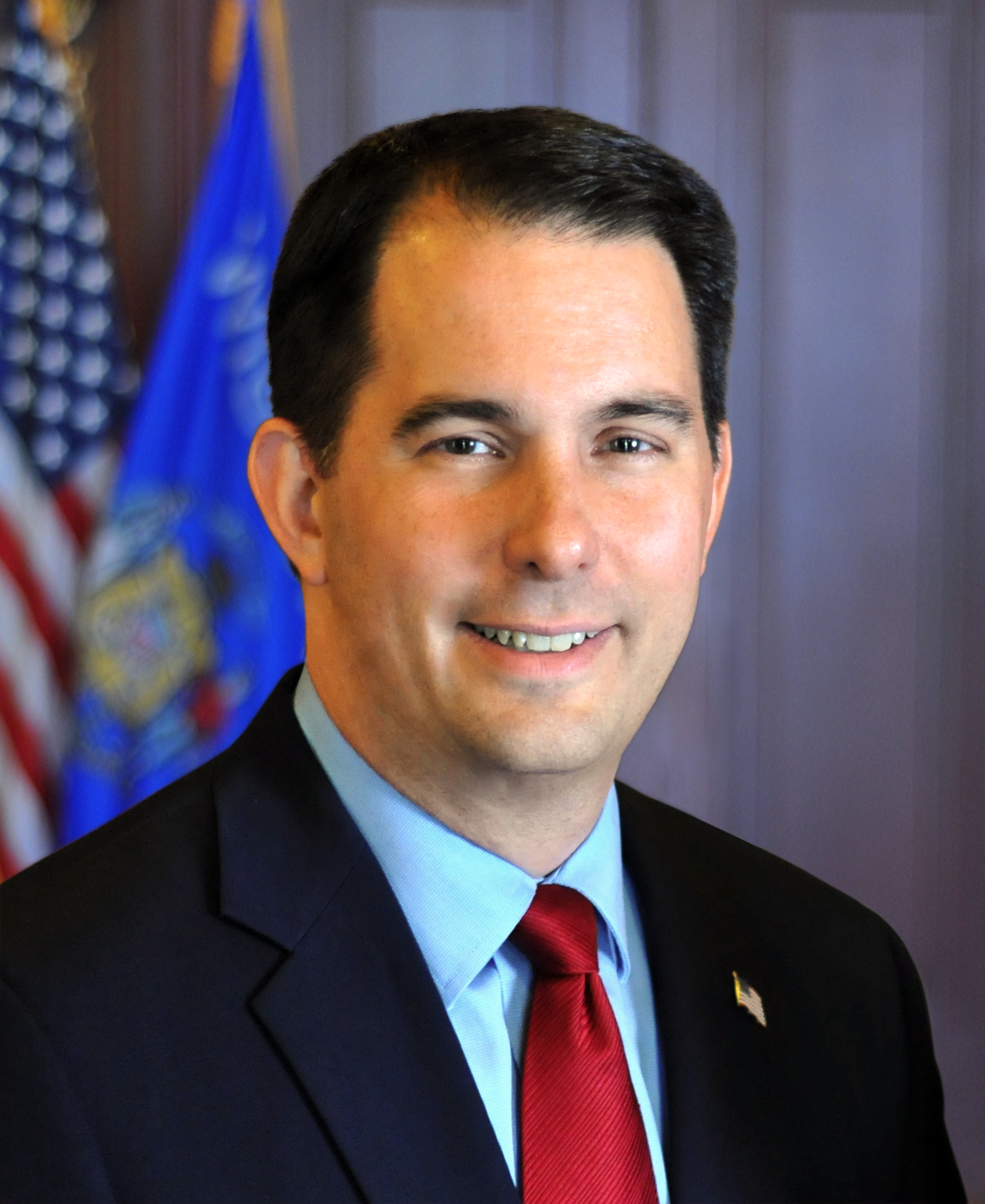Governor Scott Walker Signs Three Bills Into Law
All three bills focus on building dementia-friendly communities throughout Wisconsin.
Green Bay – Governor Scott Walker signed Assembly Bills 786, 787, and 790 into law today at Options for Independent Living in Green Bay. All three bills focus on building dementia-friendly communities throughout Wisconsin.
“Strengthening Wisconsin communities is a major priority for us as we continue to move our state forward,” Governor Walker said. “The legislation we’re signing into law today helps us create dementia-friendly communities throughout the state by providing greater tools for caretakers, health professionals, and law enforcement. We’re happy to work with the Department of Health Services to ensure Wisconsinites with dementia receive the proper care and support needed as well as resources for their caretakers to ease their financial and emotional burden.”
Assembly Bill 786 – works to help counties create better response plans for people with dementia who experience a crisis. The bill requires the Department of Health Services (DHS) to prepare a proposal for a pilot program for coalitions of two or more counties to create dementia crisis units. These crisis units will aim to assist county staff, including law enforcement and county health officials, in their ability to respond to people with dementia experiencing crisis. Successful crisis units can help reduce traumatic experience for individuals with dementia and save taxpayer money by avoiding both unnecessary emergency room visits and involuntary civil commitments at nearby psychiatric hospitals or the State of Wisconsin’s Winnebago Mental Health Institute. Authored by Representative Mike Rohrkaste (R – Neenah) and Senator Luther Olsen (R – Ripon), the bill passed the Assembly on a voice vote and was concurred by the Senate on a voice vote. It is Act 272.
Assembly Bill 787 – provides $1 million of additional funding for respite care that is distributed to all 72 Wisconsin counties under the Alzheimer’s Family and Caregiver Support Program (AFCSP). Caregivers often experience physical, emotional, and financial stress due to the many responsibilities of helping their loved ones with dementia maintain quality of life as their memory deteriorates. Respite care offers relief for caregivers, including adult day care, or short-term in-house assistance, which may allow caregivers to increase the length of time they are able to keep their loved ones at home, as opposed to a nursing home. The bill additionally raises the income eligibility limit under the AFCSP from $40,000 to $48,000 and extends access to all 11 of Wisconsin’s federally-recognized Indian tribes or bands. Authored by Representative Kathleen Bernier (R – Chippewa Falls) and Senator Tim Carpenter (D – Milwaukee), the bill passed the Assembly with a vote of 94-0 and was concurred by the Senate with a vote of 32-0. It is Act 273.
Assembly Bill 790 – provides $250,000 in General Purpose Revenue (GPR) for the Department of Health Services (DHS) to award grants to counties or regions to provide training for mobile crisis teams to better respond to people experiencing dementia-related crises. Mobile crisis teams may include local health practitioners, counselors and social workers, and other local staff who partner with local law enforcement to respond to a crisis. Authored by Representative John Jagler (R – Watertown) and Senator Tim Carpenter (D – Milwaukee), the bill passed the Assembly with a vote of 94-0 and was concurred by the Senate with a vote of 32-0. It is Act 274.
NOTE: This press release was submitted to Urban Milwaukee and was not written by an Urban Milwaukee writer. While it is believed to be reliable, Urban Milwaukee does not guarantee its accuracy or completeness.
Mentioned in This Press Release
Recent Press Releases by Gov. Scott Walker
Governor Walker Orders Flags to Half-Staff Honoring Master Sergeant Jonathan Dunbar
Apr 13th, 2019 by Gov. Scott WalkerGovernor Scott Walker ordered flags to half-staff on Saturday, April 14, 2018.
Governor Walker Orders Flags to Half-Staff as a Mark of Respect for Captain Christopher Truman of the Lake Mills Fire Department
Jan 3rd, 2019 by Gov. Scott WalkerCaptain Truman died on December 31, 2018, while selflessly assisting a driver of a crashed vehicle on Highway 12 near the Yahara River Bridge in Monona, Wisconsin.
Governor Walker Appoints St. Croix County Judge and Ashland County District Attorney
Jan 2nd, 2019 by Gov. Scott WalkerGovernor Scott Walker today appointed Attorney Scott J. Nordstrand to serve as a judge on the St. Croix County Circuit Court and Attorney David Meany to the position of Ashland County District Attorney.






















